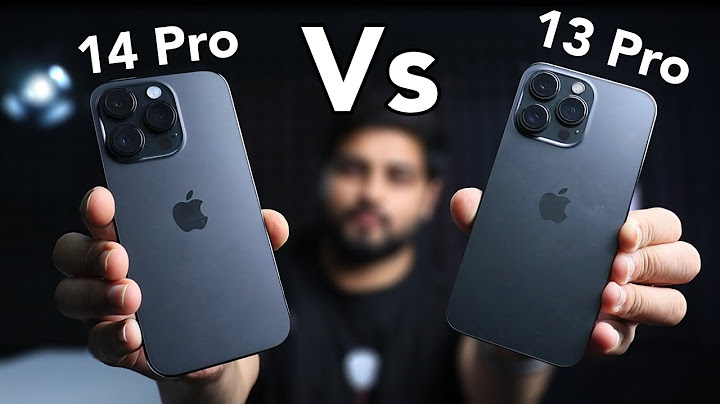One fine day you finally walk into a supermarket to buy a bottle of olive oil because you are totally convinced with all the wonderful health benefits it provides. But, as soon as you reach the shelf, you are confused to see the diversity of choices. Of course, nobody told you that there are many types of olive oils that are available - from virgin to extra virgin and premium extra virgin. Which one should you buy? Or what is the difference between regular olive oil and the virgin variety? You'll find all your answers right here.The two most common types of olive oils, you may have heard of them before, are 'refined olive oil' and 'extra virgin olive oil.' Here's how both differ from each other in terms of extraction, nutritional value, use and flavour. Show  How are both extracted?Both of them are obtained from the fruit of the olive tree but the way they are extracted differs. Regular olive oil is subjected to refining before being bottled. In this process, it may be treated with some additives and preservatives. It is light yellow in colour. On the other hand, extra virgin oil is the purest form of olive oil. It retains the golden-green hue of the olive fruit as it is not subjected to any industrial processes. It is the first juice of the fruit extracted through the process cold-pressing which is only filtered and then bottled as is. Therefore, extra virgin oil olive has a stronger flavour and aroma than regular olive oil which might be slightly bitter in taste. The gradation of olive oils is done on the basis of the level of acidity which refers to the content of Free Oleic Acid present in the oil. Regular olive oil has about 3-4% of oleic acid while extra virgin olive oil has less than 1%. The measure of free oleic acid in olive oil shows the degree to which fat has separated into fatty acids.  Photo Credit: IStockIs there any difference in nutritional value?Extra virgin olive oil (EVOO) is the highest quality of olive oil because of the lesser amount of free oleic acid it contains which makes it a bit lighter. It also contains a slightly higher quantity of antioxidants like polyphenols. It is preferred because of its anti-inflammatory properties and natural olive flavour. All kinds of olive oils are highly rich in nutrients like vitamin E, vitamin K and minerals that make it heart-friendly as compared to other cooking oils. Olive oil (be it regular o extra virgin) is not as heavy as other refined cooking oils like mustard or sunflower oil and is lighter to digest. "More than the type of olive oil, the amount of oil used in cooking should be managed to lose and maintain weight. I recommend 2 to 3 teaspoons of oil which is the basic requirement of our body," shares Dietitian Reema Madhian from Noida.  Lastly, can they be substituted for each other?Regular olive oil and extra virgin olive oil are used for different cooking purposes. The primary difference in the use of regular olive oil and extra virgin olive is due to their smoke point. Smoke point is the temperature at which the oil starts producing bluish smoke. The smoke point of refined olive oil is slightly higher than that of extra virgin olive oil which means that it will take a little more time to burn. Therefore, it is better suited for high heat cooking techniques like frying. Extra virgin olive is great in salads as a dressing and can even be used for light sauteing. "The unrefined olive oil is obviously better than the refined one because of its purity and lower oleic acid content but that doesn't make it suitable for deep frying," adds Dr. Madhian. Armed with your newfound knowledge, we're sure you'll be able to make the best choice, the next you visit the supermarket.
It seems we're always grabbing for a bottle of "good" olive oil. For the most part, cookbook authors are referring to extra-virgin olive oil, the almighty elixir that sits a bit higher on the supermarket shelf than the regular version. But what exactly makes a bottle of EVOO so much more prized—and expensive—than its paler, more affordable brother? Extra-virgin olive oil is made from pure, cold-pressed olives, whereas regular olive oil is a blend, including both cold-pressed and processed oils. EVOO is made by grinding olives into a paste, then pressing them to extract the oil. There's no heat involved, hence the "cold-pressed" label you often encounter. The resulting oil has a forest-green color; a grassy, peppery flavor; and a fruity aroma. This method, while effective, takes a substantial amount time. Certifying the product pure EVOO is also a rigorous, time-consuming process. These factors contribute to the oil's higher price. Any cold-pressed oil that doesn't meet extra-virgin standards is then refined to get rid of undesirable impurities, giving the oil a more neutral flavor and lighter color. However, unlike with other oils, including canola, corn, and vegetable, the process does not involve chemical solvents. It's then blended with a bit of EVOO to produce what's labeled as just "olive oil." So how does this affect your cooking? We suggest keeping a bottle of both on hand: Plain olive oil for general cooking and sautéing, and a nice top-shelf extra-virgin oil for dips, dressings, uncooked applications and as a finishing touch for plated food. While you could technically use EVOO in all your cooking (the myth that it turns bitter at high temperatures has since been busted), you won't be able to taste its subtleties in something like a rich boeuf bourguignon. So when you need just a drizzle for your skillet, it's better to save your money by opting for its significantly cheaper cousin. Learn the difference between these other common ingredients: - Cocoa vs. Cacao Which is better virgin or extra virgin olive oil?Virgin Olive Oil is unrefined oil usually with slight defects of aroma or flavor, lower chemical standards and higher free fatty acid levels than extra-virgin olive oil. Virgin oil is cheaper and less healthy than EVOO, but remains an unadulterated oil with sufficient quality too.
Is extra virgin olive oil the same as olive oil?Is there really a difference? And if so, what is it? Unlike regular olive oil, extra-virgin olive oil is unrefined (not processed with chemicals or heat), and it has much less oleic acid than regular olive oil (meaning its fat hasn't been broken down). It has a distinctive rich color and a notably peppery flavor.
Which olive oil is the healthiest?Extra virgin olive oil is the least processed variety and is often considered to be the healthiest type of olive oil. It's extracted using natural methods and standardized for purity and certain sensory qualities, such as taste and smell ( 3 ).
|

Related Posts
Advertising
LATEST NEWS
Advertising
Populer
Advertising
About

Copyright © 2024 membukakan Inc.


















